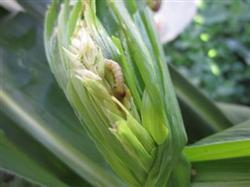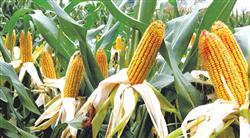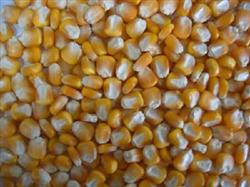The fertilization of spring corn should be light before and after fertilization.

Base fertilizer spring corn should be fertilized according to the basic principles of base fertilizer, topdressing, farm fertilizer, chemical fertilizer, nitrogen fertilizer, phosphate fertilizer, ear fertilizer and grain fertilizer. Base fertilizer should generally account for about 70% of the total fertilization, and most phosphate fertilizers should also be applied in combination with base fertilizer, usually in combination with autumn ploughing in the previous year. When applying base fertilizer, it should be evenly mixed with the soil. If nitrogen fertilizer is used as base fertilizer, it must be applied deeply to prevent the loss of nitrogen volatilization. In phosphorus-deficient soils, 450 kg of calcium applied per hectare; 150 kg of potassium chloride per hectare in potassium-deficient soils; and 15 kg of zinc sulfate heptahydrate per hectare in zinc-deficient soils. Before spring sowing, use a small amount of farm manure combined with appropriate amount of nitrogen and phosphorus fertilizer strip or hole application as corn seed fertilizer. Topdressing spring maize usually adopts the fertilization method of "light in the front and heavy in the second", that is, before jointing, the amount of urea applied is 75kg / ha, 150kg / ha, 2cm / ha and 150kg / ha, respectively, to meet the nutrient needs of spikelet, floret differentiation and grain formation stage of maize. The experimental results show that the yield of spring corn is 13.3% higher than that of "light in front and heavy in later".
- Prev

It is crucial to sow spring corn with high yield.
Improving the sowing quality of spring sowing corn and actively doing a good job of selecting and sowing improved varieties, fine soil preparation and timely sowing are very important for preserving the whole seedling and winning a bumper harvest of spring sowing corn. First, select suitable varieties according to local conditions, according to heat resources and production practice should choose the growth period of 120-130 days.
- Next

Seed treatment of drought-resistant sowing of Spring Maize
Seeds were selected and dried before sowing, uniform seeds were selected, and sunny seeds were selected for three days to improve germination energy, disease resistance and seedling emergence uniformity. The germination test was carried out before sowing. The purity of the selected seed is not less than 96%, the purity is not less than 98%, and the germination rate is not. Seed coating. The use of drought-resistant compound seed coating agent.
Related
- The first cup of black tea in spring, the flavor and history of tea gardens in Kenya, Africa
- The computer can not only choose potatoes, but also grow tea rice. AI will grow winter oolong tea champion.
- It is not only the inflated tea bitten by insects, but also engraved with the four seasons tea in Beipu.
- The Oriental Beauty Tea Festival in Zhuxian County takes the stage at the weekend to experience the plus-size feast of oil tea.
- & quot; Oriental Beauty Tea & Exploration of Emei in Hsinchu, the hometown of quot;
- The new variety of strawberry "Tainong 1" dessert is the first choice with mellow aroma. Crimson gorgeous
- History of Tea in Taiwan: from Wild Inner Mountain to Export Tea Garden
- Two types of Taiwan Oriental Beauty Black Tea won the British three-Star Award for Childhood Tea Xiang Zhang Jiaqi changed from pilot to champion tea maker.
- Banana species and varieties: the planting history of Taiwan Xianren banana and dwarf banana is long, is banana disease resistant?
- Coffee planting Technology: Qianjie Coffee from Seedling to harvesting

